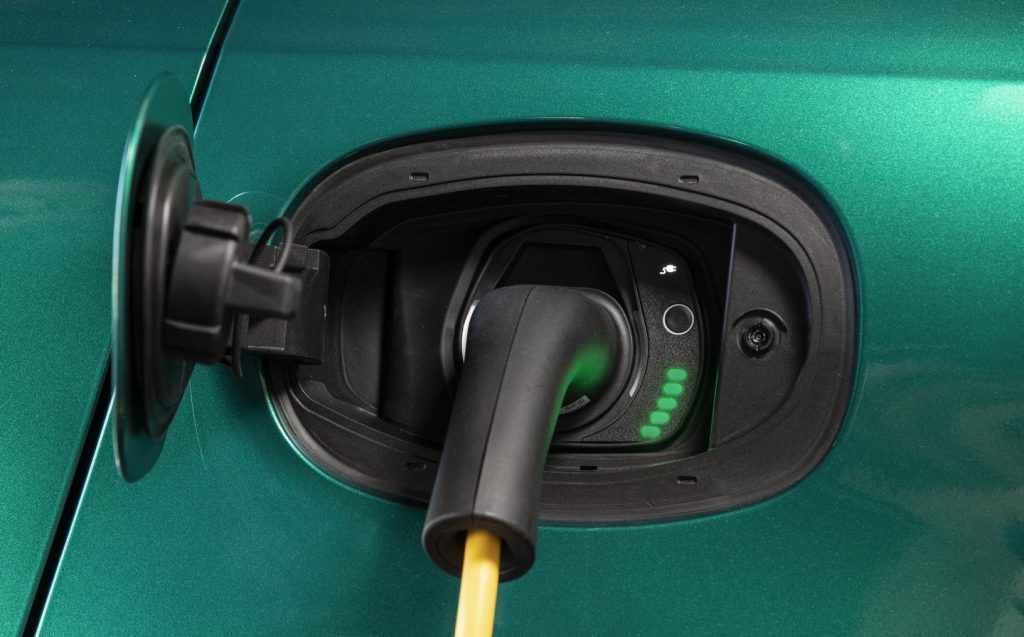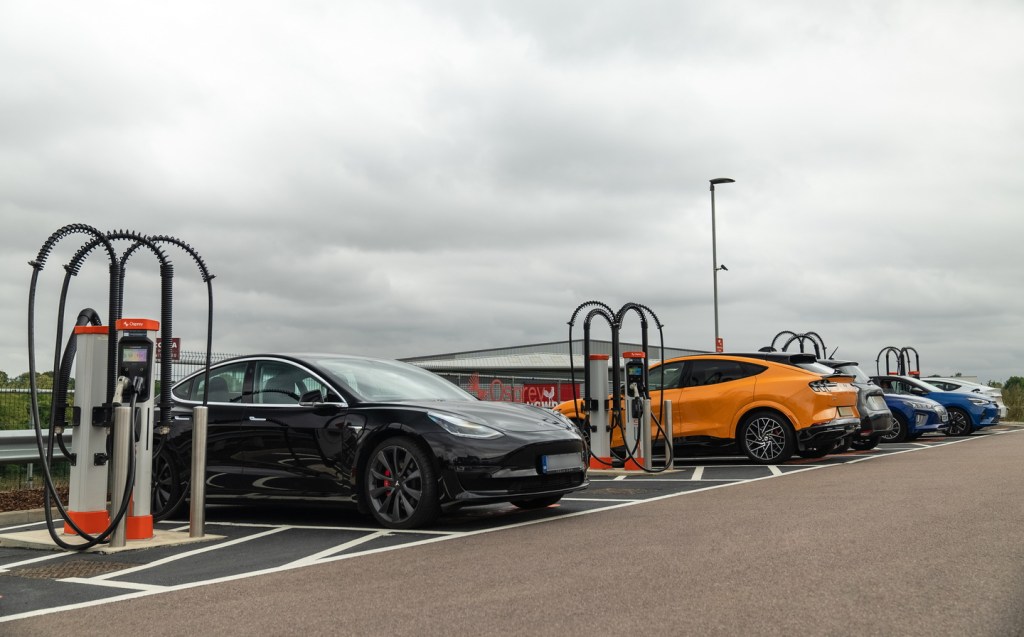ZEV Mandate: Government tells car makers at least 22 per cent of all new cars sold should be pure-electric by 2024
All new car sales pure-electric by 2035
The UK government has told car makers it wants at least 22 per cent of their new-car sales to be pure electric by 2024, rising to 100 per cent by 2035.
The Department for Transport (DfT) has released the details of the Zero Emission Vehicle Mandate (ZEVM) after months of speculation, with the car industry intensifying pressure for the details to be released as soon as possible to help with product planning.
While the targets have been announced, they are subject to a final consultation while the DfT seeks input from the automotive industry and suppliers, campaign groups, infrastructure providers and others to help fine tune the detail.
The ZEV mandate will regulate the rising percentage of zero-emission cars a manufacturer must sell between now and the outright ban on petrol, diesel and hybrid cars in 2035.
According to the consultation document, manufacturers must ensure that 22 per cent of all new cars sold in 2024 must be pure electric, increasing to 80 per cent in 2030, after which only electric and hybrid cars will be allowed. Hybrid cars will then be banned from 2035 and all new cars from that point should be pure electric.
For van makers the target is slightly less ambitious: 10 per cent must be pure electric in 2024, rising to 70 per cent in 2030 on the way to 100 per cent in 2035.
However, manufacturers who cannot meet the targets will be allowed to purchase “excess ZEVM allowances” from rival car makers, with prices for these credits to be decided within the industry rather than dictated by the DfT. If that’s not possible to cover the non-compliance, car and van makers will be fined £15,000 per non-ZEV car and £18,000 per non-ZEV van registered.
Under the proposals, from 2024 to 2026 manufacturers who struggle to hit the early targets may also “borrow” a limited number of their own ZEV allowances from future periods, to help them reach compliance without penalties. At the same time, manufacturers who are already exceeding the targets may “bank” allowances for future use.
The proposals also only apply to car companies that produce more than 2,500 vehicles per year, so ultra-niche British car makers will continue to be exempt from this legislation.
Criticism over timing
While many car makers are already well on their way to being compliant, with advance electric vehicle roll-outs, others may struggle. Critics have said the government hasn’t allowed enough time for manufacturers to prepare ahead of the first target coming into force from next year.
With the consultation running until 24 May, and the results scheduled to published by late August, that means there will be less than six months before the proposed start of the ZEV mandate, which some critics say offers very little time for car manufacturers to plan their forthcoming models and sales of existing stock.
In addition, the Government has still to define the parameters by which plug-in hybrid models will be assessed, specifically how many miles one must be able to travel on pure-electric power, giving the car makers more grey areas to deal with.

Mike Hawes, chief executive of automotive trade body the Society of Motor Manufacturers and Traders (SMMT), said: “Automotive is on track to deliver zero-emission motoring, so we welcome this long-awaited consultation on a watershed regulation for the UK new car and van market. We want regulation that gives consumers choice and affordability, and enables manufacturers to transition sustainably and competitively.
“While the proposals rightly reflect the sector’s diversity, late publication and lack of regulatory certainty make product planning near impossible, and the continued lack of clarity as to what technologies will be permitted beyond 2030 undermines attempts to secure investment.”
The new proposals are expected to be rolled out across the whole of the UK, with the devolved governments of Scotland and Wales also involved in the consultation.
The ZEV mandate is separate from recent announcements that the EU has made regarding its own combustion engine ban, and an new exemption for vehicles that run on carbon-neutral “e-fuels”.
- Renewable e-fuels give internal combustion engines stay of execution in Europe after legislation amendment
- What is synthetic e-fuel and will it make electric cars obsolete?
The UK government has said that this consultation is an opportunity to “re-examine the system for regulating vehicle emissions in light of the government’s 2030 and 2035 targets and to ensure it delivers for the UK.”

As well as the ZEV mandate, the latest proposals include the commitment of an extra £380 million in electric charging points and infrastructure across the UK.
Hawes welcomed the move but criticised the fact that simple contactless payment methods are still not required for EV charge points, and that there is no regulation in place to drive investment in the public charging network.
“The UK new car and van market is already moving at pace towards electrification, the result of massive investment by manufacturers and increased consumer demand,” he said.
“If the UK is to lead the global race to zero emission mobility, however, it must go further and faster in unlocking infrastructure investment, incentivising EV ownership and helping ensure more of these vehicles are developed and built in Britain.”
Related articles
- After reading about the UK’s ZEV mandate plans, you might like to read about the five best electric cars to buy
- Keen to go electric? Here are the top 10 longest-range electric cars
- Here are all the car makers’ electric car plans
Latest articles
- testing schedule 2
- test schedule
- F1 driver Lando Norris commissions bespoke open-top Land Rover Defender
- Citroën C3 and e-C3 2024 review: Petrol or electric, bow down before the new king of value cars
- Best-selling cars 2024: The UK’s most popular models
- Fourth-generation BMW 1 Series shows its new face with all-petrol line-up for the UK
- Cupra Tavascan 2024 review: Funky electric SUV continues Spanish brand’s EV roll
- Divine intervention? Trump-supporters’ motorhome destroyed after rolling into telegraph pole
- Extended test: 2023 Vauxhall Astra Sports Tourer GS PHEV












